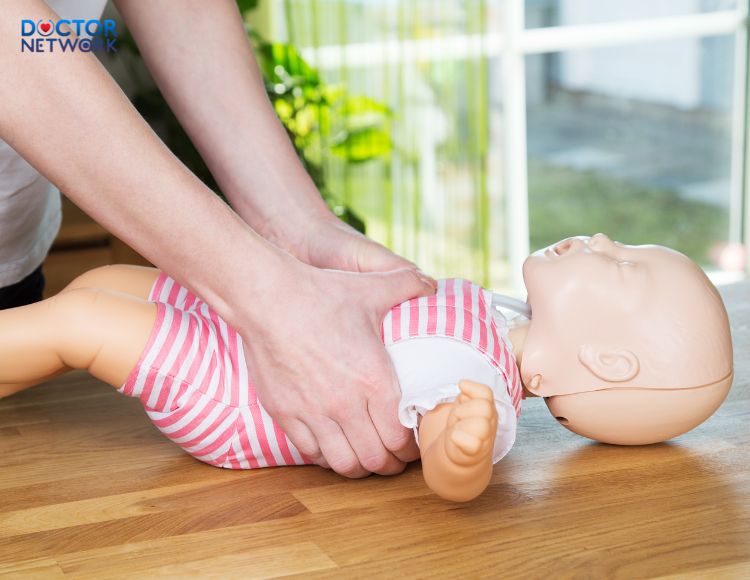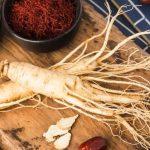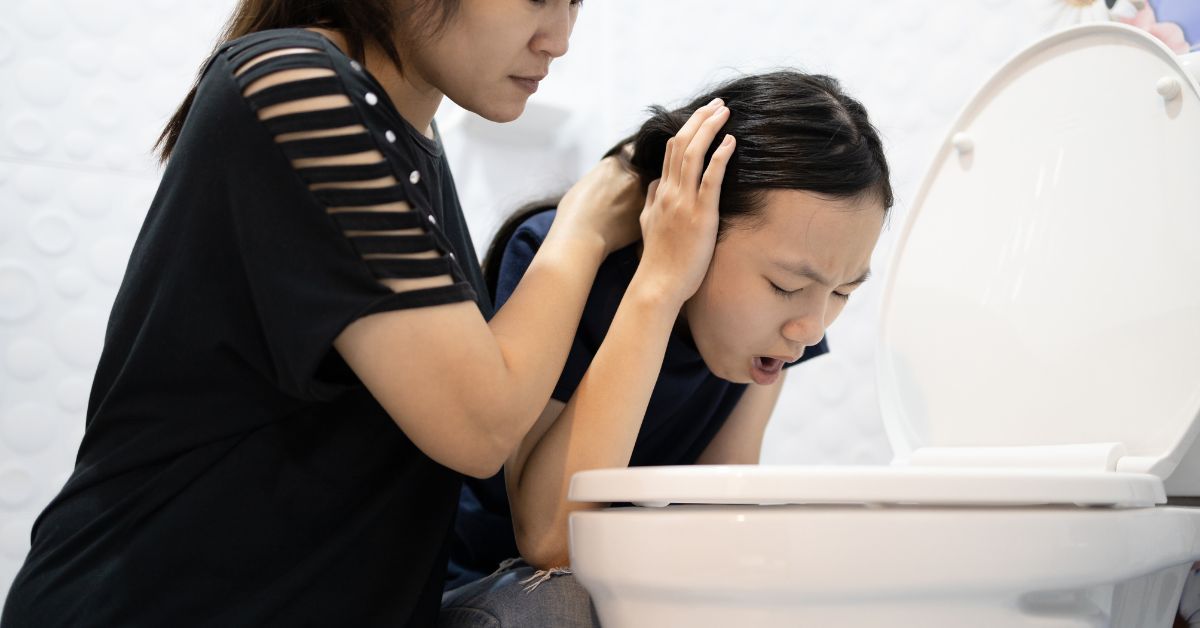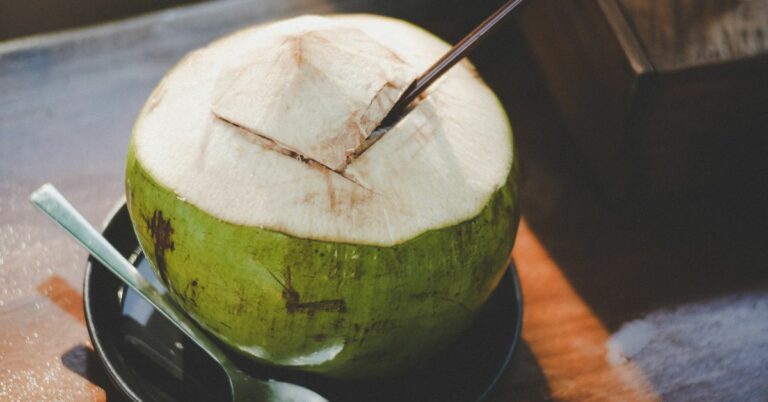Abdominal distension, commonly known as bloating, is a prevalent issue in infants, causing discomfort, fussiness, and sleep disturbances. Despite various medications available to alleviate bloating, many mothers prefer using Home Remedies for Infant Colic in Traditional Medicine due to their simplicity and effectiveness in treating infant bloating.
Why do infants experience bloating?
The digestive system of infants is immature and sensitive to various factors, leading to bloating and difficulty in digestion. Here are some common reasons:
- Incomplete digestive enzymes: The digestive enzymes in infants are not fully developed, making digestion challenging and resulting in gas accumulation in the intestines.
- Swallowing air: Infants may swallow air during breastfeeding or bottle-feeding, especially if they feed too quickly or latch improperly.
- Allergies or intolerance: Some infants may have allergies or intolerance to components in breast milk or formula, causing bloating and digestion difficulties.
- Mother’s diet: If breastfeeding, foods consumed by the mother such as beans, cabbage, or broccoli can also affect the infant.

If you are breastfeeding, eating gas-causing foods like beans, cabbage, and broccoli can also affect your baby
Signs of infant bloating
Infants with bloating typically exhibit the following signs:
- Audible gurgling in the stomach or visibly distended abdomen.
- Increased fussiness, particularly in the evening.
- Arching the back or squirming, attempting to alleviate discomfort.
- Difficulty sleeping deeply and frequent waking.
- Excessive burping.
Traditional remedies for infant bloating
If your baby suffers from bloating, you can try the following traditional remedies:
- Gentle abdominal massage: Massaging the baby’s abdomen clockwise can stimulate bowel movement, release excess gas, and reduce bloating. Research has shown that abdominal massage significantly improves bloating in infants (Johnson & McCracken, 1991).

Gently massage in a clockwise direction around your baby’s navel to help stimulate bowel movements, release excess gas and reduce bloating
- Warm compress: Applying a warm compress or towel on the baby’s abdomen can relieve pain, relax abdominal muscles, and make the baby more comfortable.
- Herbal remedies:
- Ginger: Warm ginger water or gently massaging the baby’s abdomen with fresh ginger wrapped in cloth can help reduce cramping and bloating.
- Baked onion: Wrapping baked onion in cloth and applying it to the baby’s abdomen can alleviate pain and provide mild antibacterial effects.
- Essential oils: Some oils like peppermint or lavender can reduce bloating and promote relaxation. Dilute them with carrier oils like coconut or olive oil before gently massaging onto the baby’s abdomen.
- Proper breastfeeding technique: Ensuring the baby latches correctly to avoid swallowing air is crucial. For bottle-fed babies, choose anti-colic bottles and feed in an upright position to prevent gas.
Considerations when using traditional remedies
Although traditional remedies for infant bloating are generally safe, consider the following:
- Consult a doctor before trying any remedy, especially if your baby has allergies or is on medication.
- Use remedies as directed and in appropriate dosages.
- Monitor your baby’s response carefully and stop if any adverse reactions occur.
When to seek medical attention:
Take your baby to a doctor if they exhibit the following signs:
- High fever.
- Vomiting.
- Diarrhea.
- Severely swollen and painful abdomen.
- Refusal to feed or play.
- No improvement with traditional remedies after a few days.
Home Remedies for Infant Colic in Traditional Medicine
To reduce bloating in infants, consider the following preventive measures:
- Exclusively breastfeed for the first 6 months, as breast milk is easier to digest and provides antibodies that protect against infections.
- Burp your baby after each feeding.
- Keep feeding equipment clean.
- If using formula, choose a type suitable for your baby’s age and needs.
- Maintain a healthy diet if breastfeeding, limiting foods that cause bloating like beans, cabbage, and broccoli.

If your baby is formula-fed, choose the right formula for your baby’s age and needs
Conclusion
The article has provided information on traditional remedies for infant bloating and related knowledge. It is hoped that these insights will be helpful to you in managing infant bloating effectively.
Questions about “Home Remedies for Infant Colic in Traditional Medicine“
Which traditional remedy is most effective for infant colic?
There is no single traditional remedy considered “most effective” for all infants, as each baby may respond differently to various methods. However, abdominal massage, warmth application, and the use of certain herbs such as ginger and fennel are widely used by mothers and have shown positive effects.
Can multiple traditional remedies for infant colic be used together?
It is entirely possible to combine multiple traditional remedies to enhance the effectiveness of reducing colic in babies. For example, you can massage the abdomen while applying warmth, or combine massage with the use of essential oils. However, always monitor the baby’s response and ensure there are no interactions between different herbs or oils.
Is it safe to use traditional remedies for infant colic?
Most traditionally used remedies are safe for infants when administered correctly and in appropriate doses. However, before applying any remedy, consult a doctor, especially if the baby has a history of allergies or is currently using medication.
Apart from traditional remedies, what other methods can reduce infant colic?
In addition to traditional remedies, there are several other methods you can apply to reduce infant colic, including:
- Adjusting the mother’s diet (if breastfeeding): Limiting gas-inducing foods such as beans, cabbage, and broccoli.
- Ensuring correct breastfeeding positioning: Ensure the baby latches onto the breast correctly to avoid swallowing air.
- Allowing the baby to burp after each feeding: Hold the baby upright and gently pat their back to help release gas and reduce stomach discomfort.
When should you take your baby to see a doctor if they have colic?
If your baby shows the following signs, you should seek medical attention immediately:
- High fever.
- Vomiting.
- Diarrhea.
- Hard, distended abdomen with severe pain.
- Refusal to feed and play.
- Traditional remedies showing no effectiveness after several days.
Scientific Evidence
Abdominal Massage: A study by Johnson & McCracken (1991) in the journal Infant Behavior and Developmentshowed that abdominal massage significantly reduces crying time in colicky infants due to bloating.
Another study by Underdown et al. (2006) in the Journal of Pediatric Gastroenterology and Nutrition also supported abdominal massage as a non-invasive and safe method to reduce abdominal pain in infants.
Warm Compress: Although there is no specific study on the effects of warm compresses on colicky infants, many studies have demonstrated the pain-relieving and muscle-relaxing effects of heat therapy. This explains why warm compresses are often used to alleviate discomfort in infants suffering from bloating.
This article has provided information on “Home Remedies for Infant Colic in Traditional Medicine” and related knowledge. We hope this article proves useful to you.
References:
How to soothe a baby’s stomach ache? – Vinmecvinmec·1
17 Ways to Soothe Your Baby’s Stomachache – Parentsparents·2
What to Give a Child for Upset Stomach and Vomiting – Healthlinehealthline·3
Kiểm Duyệt Nội Dung
More than 10 years of marketing communications experience in the medical and health field.
Successfully deployed marketing communication activities, content development and social networking channels for hospital partners, clinics, doctors and medical professionals across the country.
More than 6 years of experience in organizing and producing leading prestigious medical programs in Vietnam, in collaboration with Ho Chi Minh City Television (HTV). Typical programs include Nhật Ký Blouse Trắng, Bác Sĩ Nói Gì, Alo Bác Sĩ Nghe, Nhật Ký Hạnh Phúc, Vui Khỏe Cùng Con, Bác Sỹ Mẹ, v.v.
Comprehensive cooperation with hundreds of hospitals and clinics, thousands of doctors and medical experts to join hands in building a medical content and service platform on the Doctor Network application.































